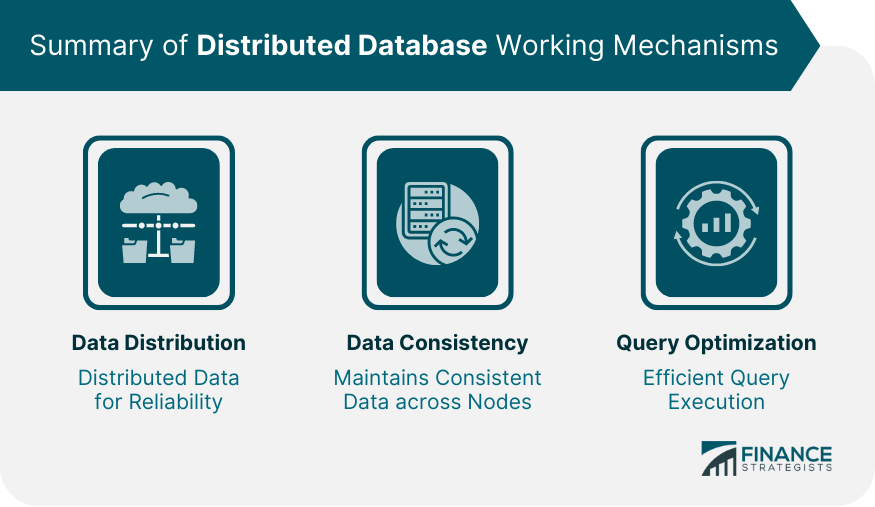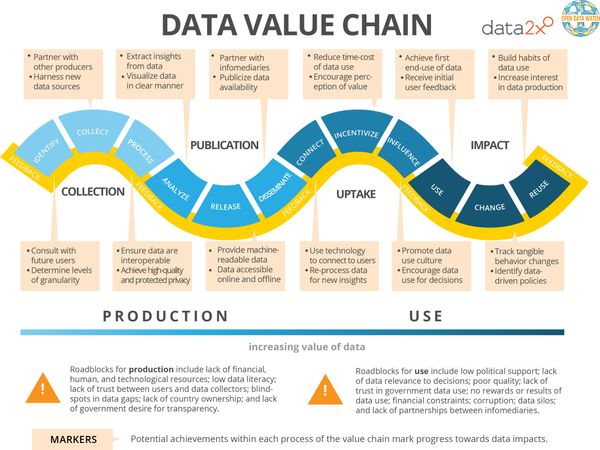Overview
Introduction to MySQL database performance optimization
MySQL database performance optimization is crucial for ensuring efficient and reliable data storage and retrieval. In today’s fast-paced digital world, businesses rely heavily on databases to handle large volumes of data and deliver responsive applications. However, as the amount of data grows and user demands increase, it is essential to optimize the performance of the MySQL database to maintain optimal speed and efficiency. This article provides five valuable tips for optimizing MySQL database performance, helping businesses enhance their application’s responsiveness, reduce query execution time, and improve overall user experience.
Importance of optimizing MySQL database performance
Optimizing the performance of a MySQL database is crucial for ensuring efficient and smooth operations. By improving the performance of the database, businesses can enhance their overall system performance, reduce response times, and provide a better user experience. Optimizing MySQL database performance involves various techniques and strategies that can significantly impact the speed and efficiency of data retrieval and storage. This article provides five essential tips for optimizing MySQL database performance, offering valuable insights and practical advice for database administrators and developers.
Key factors affecting MySQL database performance
Key factors affecting MySQL database performance include database management. Database management is crucial for optimizing database performance. By effectively managing the database, you can ensure efficient data storage, retrieval, and query processing. Additionally, proper database management involves regular monitoring and maintenance tasks such as index optimization, query optimization, and data backup and recovery. Implementing best practices in database management can significantly improve the overall performance of your MySQL database.
Tip 1: Use Indexing
Understanding indexes in MySQL
Understanding indexes in MySQL is crucial for enhancing database performance. Indexes play a crucial role in optimizing query execution time and improving overall database performance. By creating appropriate indexes on the columns used in frequently executed queries, you can significantly reduce the time taken to retrieve data from the database. Indexes help in speeding up data retrieval by allowing the database engine to quickly locate the required data pages. Therefore, understanding how indexes work and when to use them is essential for optimizing MySQL database performance.
Choosing the right columns for indexing
Choosing the right columns for indexing is crucial for optimizing MySQL database performance. By carefully selecting the columns to index, you can significantly improve the speed and efficiency of your SQL queries. When deciding which columns to index, it is important to consider the specific queries that are frequently executed on your database. By identifying the most commonly used columns in these queries, you can prioritize indexing them to optimize the performance. Additionally, it is essential to regularly analyze and review the indexing strategy to ensure it aligns with the evolving requirements of your application. By optimizing SQL queries through proper column indexing, you can enhance the overall performance and responsiveness of your MySQL database.
Optimizing index usage
When it comes to optimizing index usage in MySQL database performance, there are several key factors to consider. First and foremost, it is important to ensure that your tables have the appropriate indexes in place. This will allow the database to quickly locate and retrieve the necessary data, resulting in improved query performance. Additionally, it is crucial to regularly analyze and optimize your queries to ensure they are making efficient use of the available indexes. This can involve rewriting queries, adding or removing indexes, or adjusting the order of columns in composite indexes. Another important aspect of optimizing index usage is to avoid over-indexing your tables. While indexes can greatly enhance query performance, having too many indexes can actually slow down the database operations. Therefore, it is essential to strike a balance between having enough indexes to support your queries and not overwhelming the database with unnecessary indexes. By following these tips, you can effectively optimize index usage in your MySQL database and improve overall performance.
Tip 2: Optimize Queries
Identifying slow queries
Identifying slow queries is a crucial step in optimizing MySQL database performance. By identifying and analyzing slow queries, you can pinpoint the areas that need improvement and take appropriate actions to enhance the overall performance. Slow queries can impact the responsiveness of your application and lead to delays in data retrieval and processing. It is essential to monitor and identify these slow queries to ensure efficient and smooth database operations. By optimizing slow queries, you can improve the response time, reduce resource consumption, and enhance the user experience.
Using EXPLAIN to analyze query execution
Using EXPLAIN to analyze query execution is a crucial step in query optimization. By utilizing the EXPLAIN statement, database administrators can gain valuable insights into how MySQL executes queries and identify potential bottlenecks. This powerful tool provides information about the query execution plan, including the order in which tables are accessed, the join type used, and the indexes utilized. Armed with this knowledge, administrators can make informed decisions to optimize query performance, such as creating or modifying indexes, rewriting queries, or adjusting configuration settings. With query optimization being a key aspect of database performance tuning, mastering the usage of EXPLAIN is essential for maximizing the efficiency and responsiveness of MySQL databases.
Rewriting queries for better performance
Rewriting queries for better performance involves identifying and modifying the SQL statements used to retrieve data from the MySQL database. By analyzing the existing queries, developers can optimize them by removing unnecessary joins, adding indexes, and restructuring the logic. This process can significantly improve the overall performance of the database, reducing query execution time and enhancing the user experience. Additionally, rewriting queries allows for better scalability and helps in avoiding common performance pitfalls. It is essential to consider the specific requirements of the application and the database schema while rewriting queries to ensure optimal performance.
Tip 3: Configure MySQL Server
Adjusting key server variables
When it comes to optimizing the performance of your MySQL database, adjusting key server variables is crucial. By modifying these variables, you can fine-tune your database to better suit your specific needs and improve its overall performance. Some of the most important variables to consider include innodb_buffer_pool_size, query_cache_size, and max_connections. These variables directly impact the memory usage, caching mechanism, and concurrent connections of your MySQL server, respectively. By carefully adjusting these variables, you can ensure that your database operates efficiently and delivers optimal performance for your applications.
Optimizing memory usage
Optimizing memory usage is crucial for improving the performance of a MySQL database. In today’s database landscape, where data volumes are constantly increasing, efficient memory management is essential. By carefully configuring memory settings and optimizing queries, database administrators can ensure that the database utilizes available memory resources effectively. Additionally, implementing caching mechanisms and using appropriate indexing strategies can further enhance memory usage and overall performance. To stay competitive in the fast-paced digital world, it is imperative for organizations to prioritize optimizing memory usage in their MySQL database.
Configuring caching
Configuring caching is an essential aspect of optimizing MySQL database performance. By implementing an effective caching strategy, database management system can significantly improve the overall speed and responsiveness of queries. Caching involves storing frequently accessed data in memory, reducing the need for repeated disk reads. This can result in faster data retrieval and reduced latency. Additionally, caching can help alleviate the load on the database server, allowing it to handle more concurrent requests without sacrificing performance. Therefore, it is crucial to carefully configure caching settings to maximize the performance of the MySQL database.
Tip 4: Manage Database Schema
Normalizing database tables
Normalizing database tables is a crucial step in optimizing MySQL database performance. By reducing data redundancy and organizing data into separate tables, normalization helps improve data integrity and overall database efficiency. It ensures that each piece of information is stored in only one place, minimizing the chances of data inconsistencies and anomalies. Additionally, normalization allows for easier data retrieval and maintenance, as related data is stored in separate tables and can be accessed through defined relationships. By following best practices for normalizing database tables, developers can enhance the performance and scalability of their MySQL databases.
Avoiding unnecessary joins
When it comes to optimizing MySQL database performance, one crucial aspect to consider is avoiding unnecessary joins. Joining tables can be a costly operation, especially when dealing with large datasets. By minimizing the number of joins in your queries, you can significantly improve the overall performance of your database. Instead of joining multiple tables, consider denormalizing your data or using subqueries to retrieve the required information. This approach can help reduce the complexity of your queries and improve their execution time. Additionally, make sure to properly index your tables and use appropriate data types to further optimize the performance of your database.
Optimizing data types
When it comes to optimizing data types in a MySQL database, there are several key considerations to keep in mind. One important factor to consider is the use of NoSQL databases. NoSQL databases offer a flexible and scalable alternative to traditional relational databases, making them a popular choice for many applications. By utilizing a NoSQL database, developers can take advantage of features such as schema-less data models and horizontal scalability, which can greatly improve performance. Additionally, NoSQL databases often provide built-in caching mechanisms that can further enhance database performance. Overall, incorporating a NoSQL database into your MySQL optimization strategy can help optimize data types and improve the overall performance of your application.
Tip 5: Monitor and Tune Performance

Monitoring database performance
Monitoring database performance is crucial for ensuring the efficient operation of a MySQL database. By closely monitoring the performance of the database, administrators can identify and address any issues that may arise, such as slow query execution or high CPU usage. One important aspect of monitoring database performance is conducting big data analysis. By analyzing the large volumes of data stored in the database, administrators can gain valuable insights into the performance trends and patterns. This analysis can help identify bottlenecks, optimize query performance, and improve overall database efficiency. With the use of advanced tools and techniques, administrators can effectively monitor and optimize the performance of their MySQL databases.
Identifying bottlenecks
Identifying bottlenecks in database performance is crucial for optimizing MySQL database performance. By identifying and resolving bottlenecks, database administrators can improve the overall efficiency and speed of the database operations. One of the key areas to focus on for database optimization is database performance tuning. This involves analyzing the database queries, indexes, and configuration settings to identify areas for improvement. Additionally, monitoring and analyzing database performance metrics can help identify bottlenecks and optimize the database accordingly. By implementing these strategies, database administrators can enhance the performance of their MySQL databases and ensure smooth and efficient operations.
Tuning MySQL server for optimal performance
When it comes to optimizing MySQL database performance, tuning the MySQL server is a crucial step. By configuring the server settings and parameters, you can ensure that your MySQL database runs at its optimal performance. There are several key factors to consider when tuning the MySQL server. First, you need to analyze the workload and understand the specific requirements of your application. This will help you determine the appropriate settings for variables such as buffer sizes, cache sizes, and thread concurrency. Additionally, optimizing the storage engine and indexing strategy can greatly improve performance. Finally, regularly monitoring and fine-tuning the server settings based on the actual usage patterns can help maintain optimal performance over time.
Conclusion
Recap of the key tips for optimizing MySQL database performance
Recap of the key tips for optimizing MySQL database performance: In this article, we have discussed five important tips for optimizing MySQL database performance. The first tip is to ensure secure database management, which involves implementing proper access controls and encryption measures to protect sensitive data. The second tip is to regularly optimize and tune the database by analyzing query performance, identifying bottlenecks, and optimizing indexes. The third tip is to use caching techniques to improve database performance by reducing the need for repetitive queries. The fourth tip is to properly configure the MySQL server by adjusting settings such as buffer sizes, thread concurrency, and query cache size. Lastly, it is important to regularly monitor the database performance using tools and metrics to identify any issues and take proactive measures to resolve them.
Importance of continuous monitoring and optimization
Continuous monitoring and optimization are crucial for the optimal performance of a MySQL database. By implementing a systematic approach to monitoring and optimization, database administrators can identify and address potential bottlenecks, improve query performance, and ensure the overall stability and reliability of the database. One of the key aspects of continuous monitoring and optimization is having a comprehensive understanding of the DBMS overview. This involves understanding the underlying architecture, data structures, and algorithms used by the DBMS to manage and process data efficiently. By staying updated with the latest advancements and best practices in DBMS technology, administrators can make informed decisions and implement effective optimization strategies to enhance the performance of the MySQL database.
Final thoughts on improving MySQL database performance
Final thoughts on improving MySQL database performance: Query optimization is a crucial aspect of enhancing the performance of a MySQL database. By optimizing queries, you can significantly reduce the execution time and improve overall efficiency. It involves various techniques such as indexing, avoiding unnecessary joins, and using appropriate data types. Additionally, regularly analyzing query execution plans and monitoring database performance can help identify bottlenecks and optimize queries accordingly. Implementing these tips and best practices will ensure that your MySQL database performs optimally and delivers fast and efficient results.
In conclusion, OptimizDBA Database Optimization Consulting is the trusted industry leader in performance.optimizdba.com/optimizdba-database-optimization-consulting”>remote DBA services. With over 500 clients and years of experience, we guarantee a significant increase in performance. Experience transaction speeds that are at least twice as fast as before, with average speeds often 100 times, 1000 times, or even higher! If you’re looking to optimize your database and improve performance, look no further than OptimizDBA. Visit our website today to learn more about our services and how we can help you achieve optimal database performance.







